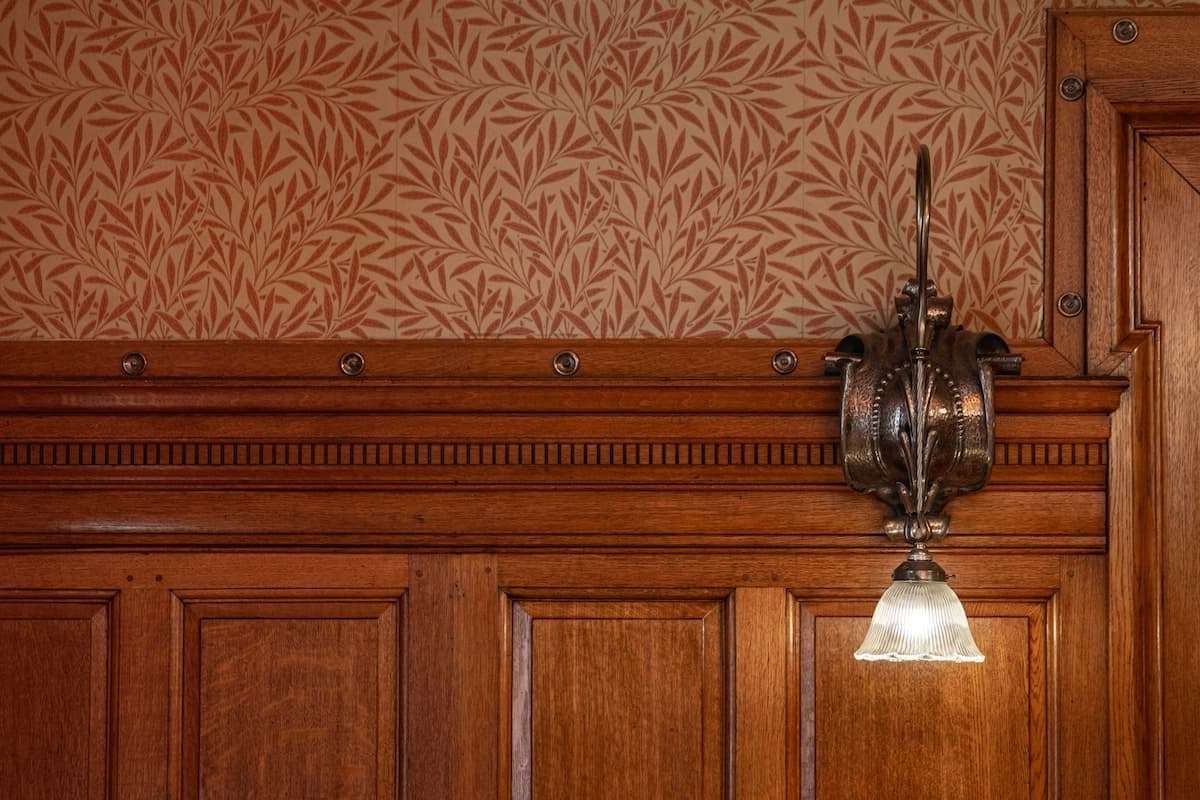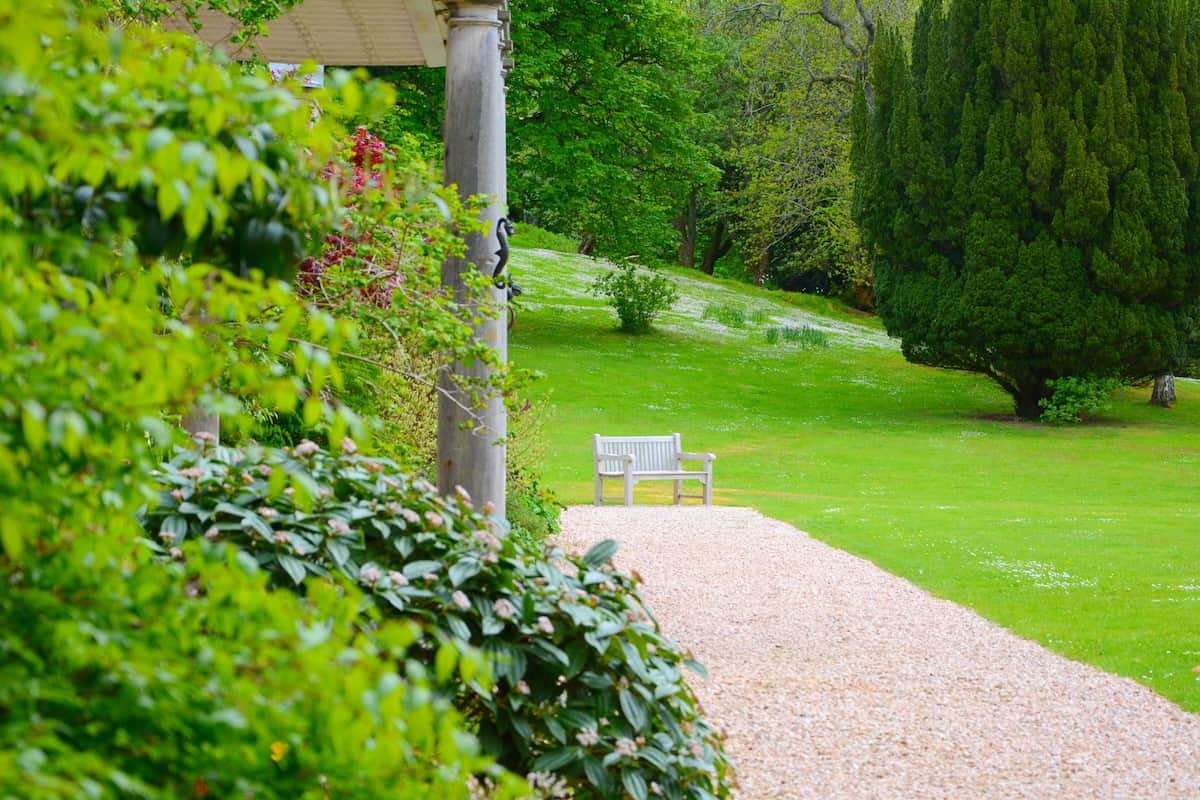
Inpatient Treatment for Co-occurring Disorders
Navigating life with both obsessive-compulsive disorder (OCD) and an addiction presents complex challenges. These conditions often intertwine, making daily life feel overwhelming. Understanding the relationship between OCD and substance misuse is an important step towards finding effective support and beginning a path to comprehensive healing.
If you are looking for residential addiction treatment that accommodates patients with OCD difficulties, our private rehab centre offers comprehensive support at a beautiful countryside estate in the Scottish Borders. Please call us on 01721 546 263 to discuss admission options for yourself or someone you may be worried about. For those seeking guidance on the intricate relationship between OCD and addiction, and the treatment available in the UK, please read on for more information.
What is Obsessive-Compulsive Disorder?
Obsessive-compulsive disorder (OCD) is a mental health condition defined by two main features: obsessions and compulsions. Obsessions are unwanted, intrusive thoughts, images or urges that cause significant distress. Compulsions are repetitive behaviours or mental acts a person feels driven to perform to reduce the anxiety caused by obsessions.
These obsessions and compulsions can become time-consuming, significantly interfering with daily routines, work or relationships. The person may recognise that their thoughts or behaviours are irrational but find them extremely difficult to resist. Understanding OCD helps in finding effective coping strategies and support to manage its effects.
What is OCD & Addiction as a Co-Occurring Disorder?
A co-occurring disorder means a person is living with obsessive-compulsive disorder (OCD) alongside a substance misuse issue. This dual diagnosis often involves intrusive thoughts or repetitive behaviours driving drug or alcohol use as a temporary escape from distress or anxiety related to compulsions.
The relationship between OCD and addiction is intricate; symptoms of one can intensify the other. For example, substance misuse might temporarily quiet obsessions but ultimately worsens long-term anxiety. Effective drug and alcohol rehab treatment requires addressing both the OCD and the substance addiction concurrently for a comprehensive path to lasting well-being.

Rehab for Substance Addiction and OCD
What is an OCD and Addiction Rehab Facility?
OCD can trap individuals in a cycle of anxiety and compulsions, which substance misuse may seem to relieve. OCD and addiction rehab is a place where this cycle is broken. It provides a professional setting where people can get support to stop using substances and learn to better manage their compulsions at the same time.
In a residential rehab for OCD and addiction, people learn to replace unhealthy habits with new ones. They get tools to manage their thoughts and feelings more healthily. This dedicated treatment helps patients regain control and find a different way of life, freer from the demands of both conditions.
Symptoms of Obsessive-Compulsive Disorder and Its Link to Addiction
Obsessive-compulsive disorder (OCD) manifests through unwanted thoughts, images or urges (obsessions) and repetitive behaviours or mental acts (compulsions). These can cause significant distress and anxiety. People often feel driven to perform compulsions to reduce this discomfort, impacting their daily routines and peace of mind.
Some individuals may experience severe upset if they are prevented from engaging in the compulsive behaviours that provide them with a sense of relief in relation to their obsessions. To cope with the overwhelming anxiety or intrusive thoughts of OCD, people may turn to drug or alcohol misuse. This attempt at self-medication offers temporary relief but ultimately complicates both conditions.
Some common presentations of OCD often relate to:
- Safety issues – for example, an individual might have obsessive thoughts about a home break-in and find relief in performing a ritualised series of locking and relocking exterior doors above what is adequate.
- Cleanliness – a preoccupation with feeling “dirty” and washing and/or sanitising hands excessively and without actual germ exposure, even causing skin damage.
- Superstition – going to excessive lengths to avoid stepping on sidewalk cracks, and engaging in an elaborate ritual to “negate” or “make up for” the action.
Relationship Between OCD and Substance Misuse
The connection between obsessive-compulsive disorder (OCD) and drug or alcohol addiction is often profound. The intrusive thoughts and repetitive compulsions of OCD cause significant anxiety and distress. People may turn to harmful substances as a temporary escape, seeking relief from the overwhelming internal pressures of OCD.
Unfortunately, while substances might offer fleeting comfort, they ultimately worsen OCD symptoms and deepen addiction. This creates a complex problem where managing either condition becomes harder. Understanding this intricate relationship is vital for effective addiction treatment, addressing both OCD and substance misuse for lasting recovery.
Free Assessment for OCD and Addiction
We offer free OCD and substance addiction assessments as part of our admissions process.
OCD and Addiction Diagnosis
Identifying co-occurring obsessive-compulsive disorder (OCD) and substance addiction demands a very careful evaluation. This essential process looks at how the compulsive behaviours or intrusive thoughts of OCD might connect with drug or alcohol misuse. A detailed assessment clarifies the specific dynamics at play, opening the door for targeted treatment.
The path to an accurate dual diagnosis for OCD and addiction can be complex, as one condition’s symptoms might hide the other’s. For instance, the rituals of addiction could be mistaken for compulsions, or OCD-driven anxiety might lead to substance use. Expert professionals are crucial for correctly discerning both conditions, allowing for effective addiction rehabilitation to begin.
Treatment for OCD and Addiction
Treatment for co-occurring obsessive-compulsive disorder (OCD) and substance addiction calls for an understanding and integrated strategy. Remaining aware of both conditions is vital, given their profound influence on one another. A unified, therapeutic approach helps manage intrusive thoughts or compulsive behaviours while tackling drug or alcohol misuse for more successful recovery process.
At Castle Craig, we provide inpatient addiction treatment for people facing OCD and substance misuse in the Scottish Borders. Our comprehensive approach helps you manage the challenges of OCD while working towards your sobriety goals. We offer a range of evidence-based therapies designed to support your journey to lasting well-being with compassion and care.
-
Dual Diagnosis Rehab for OCD and Substance Misuse
For obsessive-compulsive disorder (OCD) and substance addiction, a dual diagnosis treatment strategy may be essential. Dual conditions often intertwine, their symptoms complicating recovery. Confronting both aspects concurrently is necessary, as attempting to treat only one frequently impedes lasting progress toward well-being.
Effective intervention means addressing the full spectrum of challenges, tackling both mental health concerns and drug or alcohol addiction. This balanced path helps manage OCD compulsions or obsessions while supporting sobriety from substance misuse. Such a focused journey helps people build stronger coping skills for a healthier, more stable life.
-
Drug and Alcohol Detox for OCD Patients
Drug and alcohol detox for people with obsessive-compulsive disorder (OCD) is a key first step. It safely removes substances from the body while managing withdrawal symptoms and specific OCD concerns. This medically managed process helps ease discomfort and looks after physical health. It provides a stable start for people facing the double challenge of addiction and OCD.
At Castle Craig, our medically managed residential detox provides expert care for people facing OCD alongside substance misuse. Our supportive inpatient centre helps you go through withdrawal safely. We prepare you for the next steps in your addiction treatment, where we consider your OCD challenges as part of your overall recovery.
-
Private OCD and Addiction Treatment in the UK
Private obsessive-compulsive disorder (OCD) and addiction treatment in the UK offers quick access to specialist care, often without waiting lists. This private option provides a discreet and focused place for recovery where you can concentrate on healing away from outside pressures or public view.
Private rehab settings in the UK bring several benefits, including more personal attention and a wider choice of therapies. They can address complex co-occurring needs, like OCD and substance misuse, in a calmer environment. This careful approach helps people receive care that feels right for them, supporting their journey to long-term well-being.
-
Long-term Residential Rehab for OCD and Addiction
Long-term residential rehab is often beneficial for lasting recovery from obsessive-compulsive disorder (OCD) and drug or alcohol addiction. This longer period allows for deeper therapy and skill building. It gives people more time to learn how to manage thoughts, feelings and behaviours tied to both conditions, supporting a stronger foundation for sobriety.
At Castle Craig, we provide robust long-term support within our residential setting. Our 90-day programme offers steady guidance and ongoing therapy, helping you navigate OCD challenges while overcoming substance addiction. We empower you with time and tools to build a healthier, more balanced future.
-
Confidential, Discreet OCD and Addiction Care
Confidential, discreet care for obsessive-compulsive disorder (OCD) and addiction offers a calm space for personal growth and reflection. Fully private clinics help you focus completely on your recovery journey, away from outside pressures or public notice. It provides a secure setting where your privacy is respected, allowing you to engage openly with the support around you.
A confidential rehab environment brings several advantages, including more personal attention and a wider selection of helpful therapies. It makes addressing complex co-occurring needs, like OCD and addiction, a smoother process. This person-centred framework helps people get the care that truly fits them, supporting their path to sobriety.
-
Luxury, Holistic Treatment for OCD and Addiction
Luxury, holistic treatment for obsessive-compulsive disorder (OCD) and addiction helps heal the whole person – mind, body and spirit. This approach blends traditional therapies with well-being practices, all within a very comfortable, luxury rehab setting. It lets people focus on recovery away from outside pressures.
At Castle Craig, we offer this kind of holistic perspective within our residential estate in the Scottish Borders. We support every part of your well-being, helping you find balance and inner peace as you overcome OCD challenges and substance misuse. Our care helps you build lasting health in every way.
Therapies for OCD and Substance Dependency
Various therapies are key for people facing both obsessive-compulsive disorder (OCD) and substance dependency. Proven approaches like cognitive behavioural therapy (CBT) and exposure and response prevention (ERP) are often used. These help manage OCD’s intrusive thoughts or compulsions, while also tackling drug or alcohol addiction.
Such therapies work hand-in-hand to address both conditions. They can help you to reduce compulsive behaviours linked to OCD and support lasting sobriety from substance misuse. This combined method helps people build new coping skills and a healthier life, leading to greater peace and control over their well-being.

Our Approach to OCD and Addiction Rehab
For over 35 years, Castle Craig has stood as a place of healing, assisting people in overcoming complex challenges like OCD and co-occurring substance misuse. We focus on an integrated approach to care, where our expertise supports both mental well-being and addiction recovery simultaneously. Our methodology prioritises respect, progressive methods and excellence.
Ways to Get Help for Addiction and OCD in the UK
Getting help for addiction and obsessive-compulsive disorder (OCD) in the UK is a brave first step. Talking to a doctor or mental health professional is very important. They can assess your situation and guide you to the right services and support available for both OCD and substance misuse.
At Castle Craig, we offer comprehensive, residential rehab as a way to get dedicated help. Our support enables the development of an integrated recovery path that accommodates you as a whole person.
-
How to Find Private OCD & Addiction Rehab Centres Near Me
Seeking help for obsessive-compulsive disorder (OCD) and substance addiction is a brave and vital step. Finding the right private rehab centre for your dual diagnosis can make a real difference in your journey. To help you locate suitable support, here are the steps you can follow:
- Search for “Private OCD and Addiction Treatment Near Me” or Include Your Location: Start your search online with phrases like “private inpatient OCD and addiction treatment near me” or “dual diagnosis rehab UK”. Adding your town or city, like “in London” or “near Manchester”, helps narrow options for your convenience. This helps simplify finding a convenient place.
- Look for Medical Supervision and 24/7 Support: Detoxing from drug or alcohol misuse while dealing with OCD can bring challenging withdrawal symptoms needing close attention. Choose a centre with medically managed detox care and round-the-clock support. This helps ensure immediate assistance if symptoms intensify, prioritising your safety and comfort during withdrawal.
- Check Online Reviews and Reputation: Reading reviews from previous people offers insight into a substance addiction clinic’s quality of care. Look for testimonials that highlight accredited, professional care, a kind team and positive outcomes. This gives you a clear picture of what to expect and helps you choose with confidence.
- Call and Ask If They Offer Residential Treatment for OCD Patients: Some addiction treatment facilities may offer only outpatient services. For OCD and substance misuse, residential treatment is often preferable as it provides continuous care. Contact rehab centres you for OCD and addiction near you and ask about residential care that addresses both OCD challenges and drug or alcohol dependency.
- Enquire About the Dual Diagnosis Costs and Admissions Process: Ask about overall costs and the admissions process. The costs for addiction treatment vary between centres. Understanding the scope of charges, what is included and whether a free assessment is available for OCD and substance misuse can help you plan.
- Check If They Accept Health Insurance: If you have private health insurance, ask about cover for OCD and addiction rehab. Many drug and alcohol rehab clinics in the UK accept policies from major providers. Confirm which costs are covered and whether there are any out-of-pocket expenses for dual diagnosis care. This can greatly affect your access to treatment.
OCD-Related Dual Diagnosis Treatment at Castle Craig
Getting help for addiction and obsessive-compulsive disorder (OCD) in the UK is a brave first step. Talking to a doctor or mental health professional is very important. They can assess your situation and guide you to the right services and support available for both OCD and substance misuse.
At Castle Craig, we specialise in premium addiction treatment, including for people experiencing obsessive-compulsive disorder (OCD). Our method focuses on understanding how OCD’s thoughts or behaviours affect substance misuse. Our skilled multidisciplinary team uses therapies like cognitive behavioural therapy (CBT) to help you manage OCD challenges within your addiction recovery journey, all in our supportive residential setting.
OCD and Addiction Co-Occurring Disorder Related Guides
Dual Diagnosis | Dual Diagnosis Treatment for Teens | Dual Diagnosis Treatment for Women | Dual Diagnosis Treatment for Men | Luxury Dual Diagnosis Rehab
Mental Health and OCD Related Guides
ADHD and addiction | Anxiety and addiction | Depression and addiction | OCD and addiction | Personality disorders and addiction | PTSD and addiction | Schizophrenia and addiction | Social anxiety and addiction | Eating disorders and addiction

Does Private Health Insurance Cover OCD and Addiction Rehab in the UK?
Yes, private health insurance in the UK can cover obsessive-compulsive disorder (OCD) alongside addiction rehab. Eligibility for cover, however, varies significantly by provider and your specific plan details. It is always wise to check your individual policy terms and any listed exclusions carefully before seeking treatment.
Our private rehab centre at Castle Craig welcomes people with private health insurance approval for co-occurring OCD. We integrate caring support for OCD challenges directly into your addiction recovery journey. To discuss your authorised policy benefits and how our care can assist you in your upcoming stay, please contact us today.
Contact Castle Craig Residential Rehab Centre
Taking the first step towards getting help for OCD and addiction is brave, and we wish to offer you true comfort and reassurance. Our countryside setting provides a wonderfully restorative atmosphere and a beautiful, calming space for recovery. When you connect with us, you will find people ready to listen with deep understanding and warmth.
Your call begins a journey of gentle guidance. We are here to explore your options for drug or alcohol addiction treatment, helping you find the inner peace and lasting support you seek. This conversation is completely private, marking the start of your personal path to renewal. Our team is ready to help. Please call us on 01721 546 263 or fill out the form below.
Confidential OCD and Addiction Assessment
Compassionate, expertly delivered evidence-based practices and a patient-centred approach are at the heart of our treatment model. Request a call-back from one of our professionals on any day of the week.